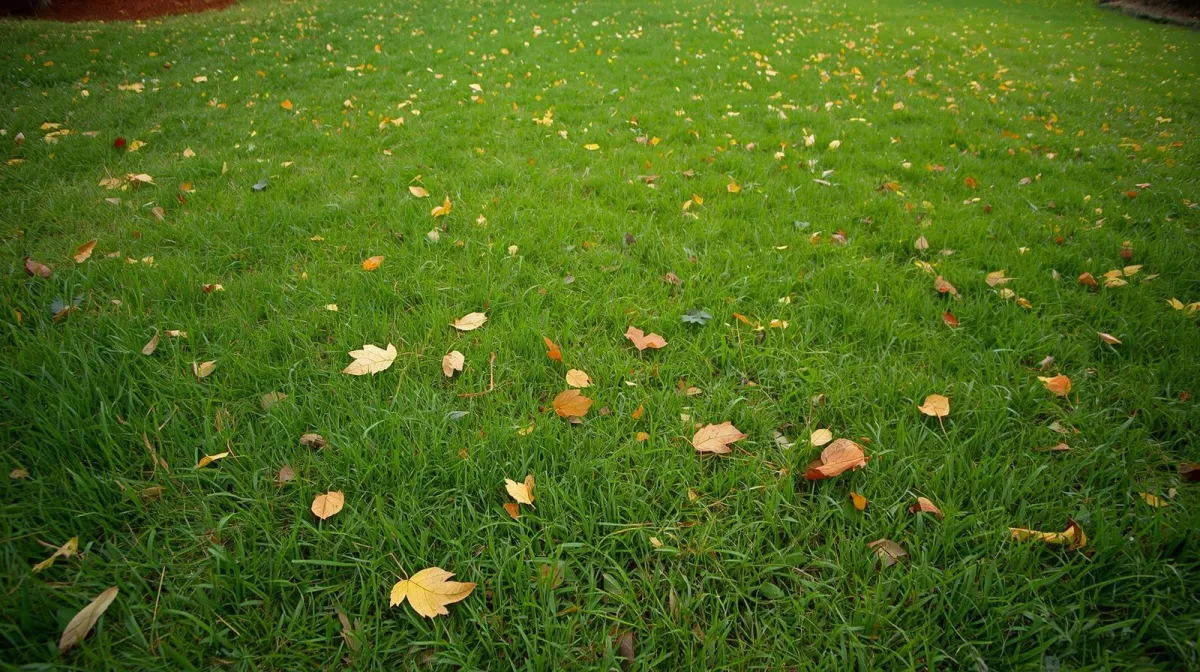
Ruston LA Landscaper Guide to Fall Fertilization and Soil Care
Why Fall Fertilization Matters for Landscaping in Ruston, Louisiana
When autumn rolls into Ruston, Louisiana, many homeowners assume their lawn is ready for a winter rest. However, this is exactly the season when your grass and soil need the most attention. Fall fertilization provides the nutrients your lawn requires to store energy, strengthen roots, and prepare for a vibrant comeback in the spring.
In northern Louisiana, where soil composition can range from clay-heavy patches to sandy loam, lawns face unique challenges. Ruston’s fall climate—with cooler nights and lingering warmth during the day—creates an ideal window for fertilizer absorption and soil improvement.

The Science Behind Fall Lawn Care
Grass doesn’t stop growing in fall—it simply shifts its energy underground. Instead of pushing out new blades, it develops stronger root systems. Fertilizing at this time ensures roots absorb nitrogen, phosphorus, and potassium before the first frost, giving lawns a head start for spring.
Understanding Your Lawn and Soil in Ruston
Every lawn is different, but in Ruston, common turf varieties include Bermudagrass, Zoysia, and Centipedegrass—all of which benefit from fall fertilization. Warm-season grasses need nutrients stored before going dormant, while cool-season overseeding can help patch thin areas.
Signs of nutrient deficiency often show as:
Yellowing leaves (nitrogen shortage)
Purple-tinged grass (phosphorus deficiency)
Weak blades before winter (potassium shortage)
A professional soil test is the first step every Ruston landscaper recommends. It tells you the soil’s pH, nutrient balance, and what fertilizers are best for your lawn.
Essential Fertilization Practices for Fall
The secret to fall fertilization is timing and balance. Experts recommend fertilizing in October, about 4–6 weeks before the first expected frost.
Key nutrients:
Nitrogen (N): Encourages growth and green color.
Phosphorus (P): Strengthens root development.
Potassium (K): Boosts disease resistance and winter hardiness.
Ruston lawns typically benefit from a slow-release fertilizer blend, ensuring nutrients don’t wash away during fall rains.
Soil Care Tips for Ruston Lawns
In addition to fertilization, fall is the perfect time to improve your soil.
Core Aeration: Reduces soil compaction and allows roots to breathe.
Overseeding: Fills in bare spots for a denser lawn.
Organic Amendments: Compost, mulch, or lime improve soil structure and balance pH.
Ruston-Specific Landscaping Challenges
Ruston soils often swing between clay-heavy areas (which hold water) and sandy spots (which drain too quickly). Knowing your soil type helps you choose fertilizers and amendments wisely.
Additionally, fall rainfall patterns in Louisiana can leach nutrients. A landscaper may recommend stabilizing soil with organic matter before applying fertilizer.
Step-by-Step Fall Lawn Care Schedule
September: Soil testing and aeration
October: Fertilization and overseeding
November: Mulching leaves and prepping for winter dormancy
This calendar helps Ruston homeowners stay on track with seasonal care.
Common Mistakes Ruston Homeowners Make
Over-fertilizing, which burns grass and harms roots
Ignoring soil pH levels (ideal range: 6.0–6.5)
Overwatering, especially before winter dormancy
Hiring a Professional Ruston Landscaper
While DIY lawn care works for some, hiring a professional landscaper in Ruston saves time and ensures long-term results. Ask questions like:
Do you provide soil testing before fertilization?
What type of fertilizer blends do you recommend for Ruston soil?
How do you adjust lawn care for heavy rainfall years?

Eco-Friendly and Sustainable Lawn Care Practices
If you want a greener approach, consider:
Organic fertilizers (compost tea, bone meal, natural blends)
Native plants that thrive in Louisiana’s climate
Reduced chemical runoff with slow-release nutrients
For more eco-friendly lawn care strategies, visit Louisiana State University AgCenter Extension.
FAQs About Fall Fertilization in Ruston, LA
Q1: When should I fertilize my lawn in Ruston?
A: Mid to late October is the best time, before the first frost.
Q2: Do I need to test my soil every year?
A: Not always but testing every 2–3 years ensures proper nutrient balance.
Q3: Can I overseed in fall?
A: Yes, fall is the best season for overseeding in Ruston.
Q4: What fertilizer ratio is best for fall?
A: A balanced mix like 3-1-2 (Nitrogen-Phosphorus-Potassium) works well.
Q5: How often should I water after fertilizing?
A: Water lightly to help nutrients soak in but avoid overwatering.
Q6: Is professional fertilization worth it?
A: Yes, professionals adjust treatments to Ruston’s unique soil and weather.
Conclusion: Preparing Your Lawn for a Healthy Spring
Fall fertilization and soil care are investments that pay off when spring arrives. By fertilizing in October, aerating compacted soil, and using the right amendments, Ruston homeowners can enjoy lush, green lawns year-round. Whether you handle it yourself or call a professional landscaper, fall is the time to act.

